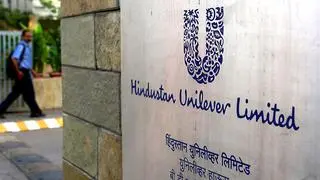Global car rental majors find it tough to operate in India with a viable business model, with brands such as Budget and global leader Hertz pulling the plug on most of their local operations in recent times.
Most companies have been shy of investing big in India and have chosen the franchise route (a tie-up with a local agency) due to competition from large unorganised players and lack of specific market knowledge. The purpose of such a strategy was to build the brand in a market which is seen to have huge prospects in the coming years.
Organised player s
The present car rental market size is around Rs 2,000 crore, of which, organised players account for only 10 per cent share.
Mr Ashok Vashist, CEO and promoter, Wise Travel India, told Business Line that the high capital intensive nature of the business, coupled with increasing risks in a ‘scattered' market like India, makes it unviable for the global majors. An industry veteran, Mr Vashist, has worked with brands such as Hertz, Carzonrent (started Easycabs), Europcar and Travelhouse.
“These arrangements have been very flimsy. The foreign brand wants to extract high royalties, but don't want to invest in India because the market size is huge and scattered as compared to the US and Europe. Also, they are primarily into self-drive and in India they have high overheads like investing, training drivers,” Mr Vashisht said.
He added, “There's not much support from the international brand locally. They get a signing fee and royalty on sales, which is around 3-5 per cent. They will only look to start their business if the franchise size grows to at least above 10,000-15,000 cars which is a critical number.”
Shifts local partners
The unstable business model is also exemplified by the fact that many of the global brands have shifted across various local partners in their domestic tenure. Budget, part of the $5.1 billion (2010) Avis Budget Group, which exited the market around four months back, had last been with Mumbai-based Ichiban Honda for around four years. Before that it had a tie-up with Sapna Tours and Travels. Meanwhile, Hertz has had licence agreements with Autoriders, Transport Corporation of India and Carzonrent. At present, Hertz has a limited partnership with Orix for corporate and other select customers (mostly international clients).
“It was a short-term marriage in most cases. These brands have had a chequered history in India as they have frequently changed (licence) contracts,” said an industry source.
Paris-based Europcar, now with its third local partner, Jet Airways, has had licence arrangements with ITC company, Travelhouse, and also Vins Overseas. Another car rental brand, Dollar, exited India two years back after ending a partnership with local firm Routes.
Added Mr Vashist, “When they come back, it has to be on a much bigger scale as the country is huge.”
The Avis brand in India, however, has chosen a different path compared to its peers. Avis India is in fact a joint venture company between Avis Europe (recently bought out by Avis Budget Group, US) and the domestic Oberoi Group. Avis Rent-a-Car, which operates in over 10,000 locations worldwide, is the second largest global car rental brand after Hertz Corporation.
“Most car rental brands in India are licenced to an operator where the value for both partners has not been working out in many cases. That's why Avis chose the joint venture route since in the future prospects in India and China are expected to be very bright,” Mr Sunil Gupta, CEO, Avis India.







Comments
Comments have to be in English, and in full sentences. They cannot be abusive or personal. Please abide by our community guidelines for posting your comments.
We have migrated to a new commenting platform. If you are already a registered user of TheHindu Businessline and logged in, you may continue to engage with our articles. If you do not have an account please register and login to post comments. Users can access their older comments by logging into their accounts on Vuukle.